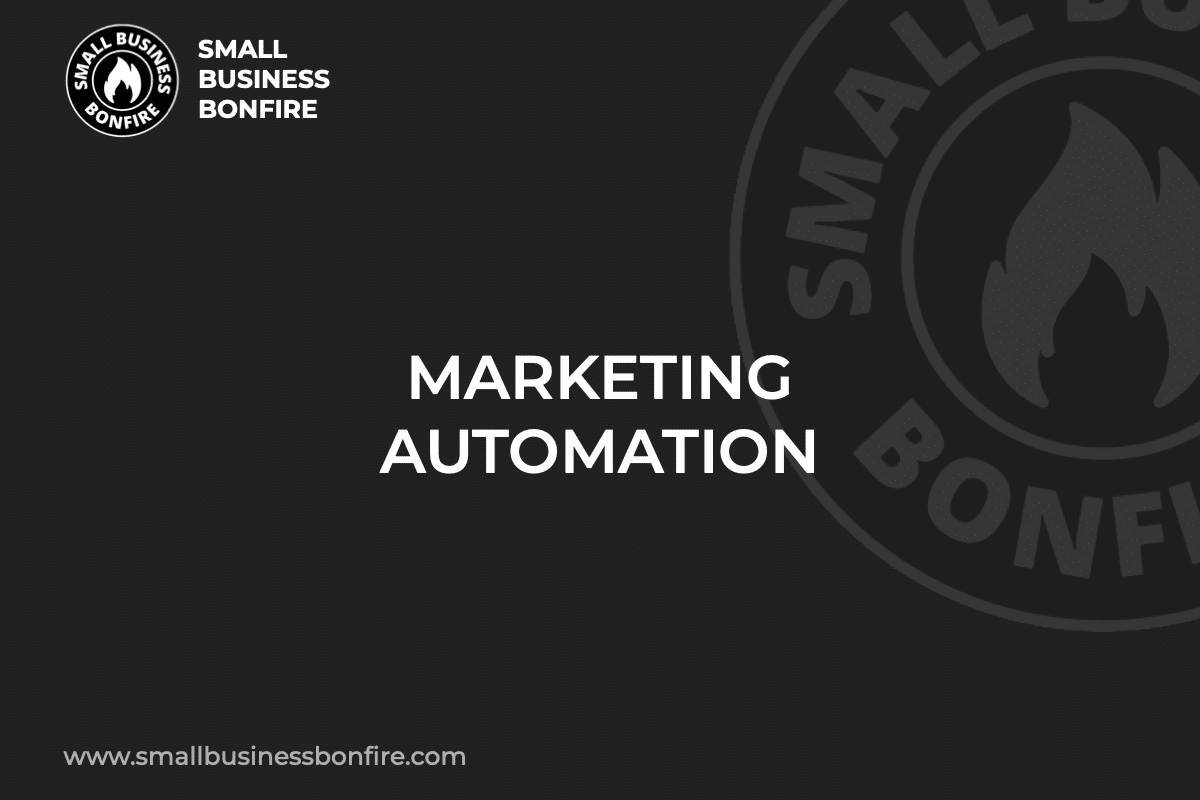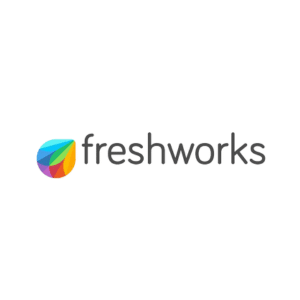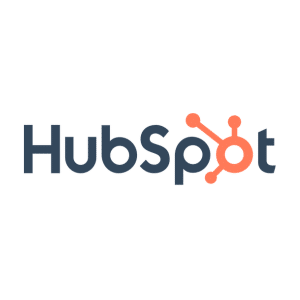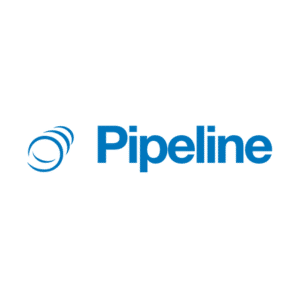Are marketing-related tasks overwhelming your business? Do you understand the importance of marketing efforts, but they’re taking up 90% of your time?
If this sounds like you, there’s no need to worry! Handfuls of small businesses struggle to keep marketing tasks organized and efficient.
Hi, my name is AJ! After selling my business for multiple seven figures, I wanted to help entrepreneurs. That’s when Small Business Bonfire (SBB) came to be!
As my company was growing, organizing and implementing marketing campaigns began to eat away most of the day. That’s until I discovered marketing automation!
Keep reading if you want to learn how automation tools can save your team time AND money!
Key Takeaways
- Marketing automation is marketing-centered software that handles repetitive tasks automatically.
- Marketing automation tools do things like send emails, post on social media, and schedule meetings.
- The benefits of a marketing automation solution include a more efficient workforce and better data management.
- Marketing automation tools are customizable to each business's unique needs.
Related Reading: Best CRM for Small Businesses
SBB Featured Partners
What is Marketing Automation?
Marketing automation is a technology that replaces manual, repetitive tasks.
As a result, marketing teams can spend more time on customer-centric tasks rather than mundane (yet necessary) ones.
Essentially, marketing automation is software or other technology that handles marketing tasks and campaigns automatically.
Some of the tasks marketing automation software can do include the following:
- Send email campaigns
- Collect and organize customer-related data
- Send meeting reminders
- Create templates for emails, social media posts, etc.
- Modify campaigns to better target prospects
- Create workflows
Marketing automation tools are powerful and helpful, resulting in more sales, better customer relationships, and efficient employees!
How Does Marketing Automation Work?
At its core, marketing automation uses software to automate repetitive marketing tasks, such as:
- Sending emails
- Posting content on social media platforms
- Tracking website interactions
Companies can program the software to react based on specific triggers, like a visitor subscribing to a newsletter or downloading a resource.
Further, automatic actions allow for personalized and timely engagement with prospects and customers.
Over time, a marketing automation platform collects data and provides insights into customer behavior.
As a result, you and your team can fine-tune your marketing strategies for better results!
Benefits of Marketing Automation
There are numerous benefits of marketing automation, such as better data management and more sales conversions.
Below, I’ve listed the primary advantages that come when businesses implement marketing automation platforms.
Let’s take a look!
Team Efficiency
Marketing automation elevates team efficiency by freeing up valuable time previously dedicated to manual, repetitive tasks.
As a result, employees can focus on strategic, customer-oriented initiatives.
Also, marketing automation software aids in seamless coordination among team members.
Therefore, your business’s campaigns are streamlined and include real-time data tracking.
When teams have more team and better information, it allows for data-driven decision-making and improved productivity.
Marketing and Sales Alignment
Marketing automation software aids in aligning marketing and sales departments by providing a unified platform where both teams can track and nurture leads throughout the sales funnel.
Further, this unified platform creates a shared language and visibility.
As a result, the two departments can do the following things:
- Collaborate effectively
- Track shared goals
- Optimize strategies based on comprehensive, real-time data
What happens if the sales and marketing departments aren’t aligned?
When marketing and sales teams aren’t on the same page, the effects can significantly impact business processes and sales.
The primary problem is that companies don’t have a unified view of their target audience.
As a result, marketing and sales initiatives are disorganized and may not resonate with the prospect as much.
Better Data Management
Better data management, a significant benefit of a marketing automation strategy, leads to more informed decision-making.
Therefore, businesses can tailor their marketing efforts based on tangible insights.
Also, managing data more efficiently improves customer segmentation, leading to the following things:
- More personalized content
- Targeting the right audience and the best time
- Increase in customer engagement
- Higher sales conversion rates
Increased Conversions
Marketing automation can increase sales conversions by enabling businesses to deliver highly personalized content.
On top of that, a marketing automation solution ensures timely engagement based on customer behaviors and preferences.
Automating the nurturing process ensures no potential customer falls through the cracks.
As a result, marketing campaigns move leads through the sales funnel and increase the chances of conversion.
Lead Nurturing
Lead nurturing is beneficial because it allows businesses to build meaningful relationships with potential customers.
As a result of these genuine connections, companies successfully guide prospects through the sales funnel by providing relevant content and personalized interactions.
The lead nurturing process keeps your brand top-of-mind for prospects and increases the likelihood of customer loyalty.
Why is personalization in lead nurturing crucial?
Consumers prefer to shop with brands that make them feel special and one of a kind.
Therefore, using customer data to understand who’s shopping with your brand is an excellent way to secure more sales and build a loyal customer base.
Better Reporting
Accurate reporting, a vital advantage of a marketing automation platform, provides clear, data-driven insights that can significantly enhance your marketing strategies.
By leveraging these precise reports, businesses can do the following things:
- Make informed decisions
- Track campaign effectiveness in real-time
- Precisely measure their return on investment (ROI)
In-depth reports ensure you and your team make the best decision for the company!
Personalized Marketing Strategies
Marketing automation software makes it easier to deliver personalized marketing strategies.
How does the system do this? Automation tools deliver personalized content by leveraging customer data to provide tailored content and interactions!
This targeted approach ensures each prospect receives the right message at the right time, significantly enhancing the following things:
- Engagement
- Customer experience
- Conversion rates
Lead Scoring
Lead scoring is a powerful marketing automation feature that allows businesses to rank prospective customers based on their conversion likelihood.
This ranking system allows marketing and sales teams to prioritize their efforts on high-value leads.
For instance, lead scoring ensures the prospects with the higher scores are the individuals who receive your team’s attention first.
After all, they are likelier to purchase your products or services!
As a result, marketing departments are more efficient.
Scalable Processes
Marketing automation facilitates scalable processes by allowing businesses to manage larger volumes of customer data and interactions.
The automation software’s ability to automatically adapt and respond to changing trends and customer behaviors ensures your marketing efforts can grow and evolve with your business!
Marketing Automation Best Practices
Marketing automation platforms are powerful and complex.
Some systems are so complex that companies fail to make the most of the data, insights, and reports the automation platform offers.
Therefore, it’s crucial to understand best practices associated with marketing automation tools.
Below, I’ve compiled six best practices worth looking into!
Define Your Automation Goals
Defining your automation goals is crucial because it determines the direction of your efforts and helps measure success.
Further, clear goals allow you to align your marketing strategies with your business objectives.
As a result, aligning objectives ensures a coherent and focused approach.
Also, specific automation goals offer a benchmark to evaluate the effectiveness of your marketing automation system.
Therefore, your business can continually improve based on previous benchmarks!
Encourage Team Collaboration
Team collaboration ensures different departments, such as marketing and sales, work cohesively towards a common objective.
As you can imagine, it increases overall efficiency when everyone’s on the same page.
Also, collaboration facilitates idea sharing, knowledge, and insights that can lead to innovative strategies and better decision-making.
Further, working together promotes an environment of shared responsibility, enhancing accountability and resulting in a more personalized customer journey.
Create Process Visualizations
Creating process-visualizations is a vital step in optimizing your marketing automation strategies.
By mapping workflows and processes, businesses can identify potential bottlenecks, inefficiencies, or gaps affecting their lead nurturing and conversion rates.
Also, visualizing these processes provides a clear understanding for all team members.
As a result, companies promote collaboration and ensure everyone is aligned with company objectives.
Segment Your Customer Database
Segmenting your customer database is pivotal for delivering personalized and relevant content to your audience.
By dividing your prospects into smaller groups based on specific criteria, you can tailor your marketing campaigns to resonate with each segment’s unique needs and interests.
Some examples of customer segment criteria include things like:
- Demographic information
- Buying behaviors
- Location
- Social media-related content
- Communication channels
This targeted approach enhances customer engagement and experience and improves your marketing efficiency.
Create Interesting & Engaging Content
Creating engaging content is paramount in attaining and retaining audience attention in a crowded digital space.
This type of content should pique your target audience’s curiosity and encourage interaction.
As a result, your company fosters a sense of community around your brand.
Ultimately, compelling content does the following things:
- Drives customer engagement
- Enhances brand awareness
- Boosts conversion rates
Analyze As You Go
Analyzing your marketing campaigns as they happen is crucial for real-time optimization.
Also, keeping tabs on your strategies allows your marketing team to adjust tactics based on live data.
This ongoing analysis provides immediate feedback and insights into what’s working and what’s not.
Therefore, teams can implement swift changes to enhance campaign performance.
Using marketing automation software to stay updated on campaigns leads to the following things:
- More effective tactics
- Improved customer engagement
- Higher conversion rates
Is Marketing Automation Easy to Use?
Marketing automation tools are incredibly easy to use, making them excellent resources for ALL business owners.
Here are three things that make automation software so intuitive!
User-Friendly Interface
Most marketing automation platforms are designed with a user-friendly interface, making them easy to navigate even for those not particularly tech-savvy.
The intuitive layout of these platforms ensures users can quickly find and use the features they need, from campaign creation to data analysis.
Extensive Training and Support
Marketing automation providers often offer extensive training and support to ensure users can effectively use their tools.
For instance, the types of support for marketing automation tools include things like:
- Tutorials
- Webinars
- Step-by-step guides
- Dedicated customer support teams who are ready to assist with any queries or issues
Integration Capabilities
Marketing automation systems are also easy to use because of their seamless integration capabilities.
For instance, businesses can easily connect these systems with existing CRM, email platforms, and other marketing tools.
As a result, integrations streamline your marketing processes and save you from the hassle of manually transferring data between different systems.
Marketing Automation Examples
How many things can marketing automation tools do?
When I first discovered marketing software, I was blown away by its capabilities!
Below, I’ve compiled my favorite marketing automation examples!
While you may not need all of these features, it’s helpful to know how powerful these systems are.
Email Drip Campaigns
Email drip campaigns are automated sets of emails that are sent out on a schedule or triggered by specific user behaviors.
Further, drip campaigns are an effective tool within marketing automation that helps businesses do the following things:
- Nurture leads
- Increase engagement
- Drive conversions
Email drip campaigns are so effective because they deliver relevant information to customers over time.
Automatic Lead Scoring
Automatic lead scoring is a powerful marketing automation tool that assigns a numerical value, or score, to each lead.
Also, companies base this score on various factors such as:
- The lead’s behavior
- Engagement with your company
- The prospect’s likelihood of converting into a customer
Essentially, automatic lead scoring helps businesses identify high-quality leads, prioritize their efforts, and nurture those leads effectively to drive conversions.
Birthday Greetings
Birthday greetings in marketing automation refer to the automatic sending of personalized messages or offers to customers on their birthdays.
This strategy helps businesses do the following:
- Nurture customer relationships
- Enhance brand loyalty
- Increase engagement by making customers feel valued and appreciated
Meeting Reminders
Meeting reminders in marketing automation refer to the automated notifications sent to clients or team members ahead of scheduled meetings or events.
These reminders increase efficiency by ensuring punctuality and preparedness, fostering more productive interactions, and enhancing customer relations.
Welcome Emails
Welcome emails are automated messages sent to new subscribers or customers to acknowledge their engagement with your brand.
Often the first touchpoint in a customer’s journey, these emails help establish a positive relationship.
Also, welcome emails set expectations for future communications and encourage further interaction with your brand.
Is Marketing Automation Part of CRM?
Many people often ask, “Is marketing automation part of CRM?”
The answer is yes!
In fact, many customer relationship management (CRM) providers incorporate marketing automation features into their platforms to offer businesses a more integrated, all-in-one tool.
Here are a few marketing automation features that you’ll commonly find in CRM systems:
- Email marketing automation
- Social media marketing
- Analytics tools
- Lead generation software
- Advertising automation
CRM systems already collect an immense amount of customer information, helping teams understand their target audience better.
Therefore, when you combine this technology with marketing automation, your business can scale to unreal levels!
Utilizing CRM data to create effective marketing automation strategies is one of the best things marketing professionals can do!
Still, while most CRM systems include some form of marketing automation software, it’s not standard for every provider.
Therefore, it’s crucial to ensure your CRM has marketing automation capabilities before investing in expensive software!
Marketing Automation Software
What kinds of marketing automation software exist?
There are numerous examples, including the following:
- Customer journey
- Scheduling
- Retargeting
- Optimization
Here’s everything you need to know about each of these tools!
Email Automation Software
Imagine you’re throwing a party and have a list of friends you want to invite.
In this scenario, you wouldn’t want to manually write and send each friend an invitation.
Instead, you’d wish for a way to write one awesome invitation and have it automatically sent to everyone on your list.
That’s exactly what email automation software does but for businesses.
Email automation software helps businesses write one email and automatically send it to many customers or potential customers.
Also, these tools can send follow-up emails based on how the customer interacts with the first one, like sending a thank-you message if they RSVP to the party (or, in business terms, buy a product).
Customer Journey Automation Software
Customer journey automation software is a tool that allows businesses to visualize and analyze the path a customer takes from the first point of contact to the final purchase.
A customer journey tool automatically tracks customer behaviors and interactions across multiple channels, providing insights into their needs and preferences.
Further, this form of marketing automation enables businesses to deliver personalized experiences at each customer journey stage.
As a result, businesses enhance engagement and conversion rates!
A customer journey automation tool is like having a roadmap of your customer’s journey, empowering you to make strategic decisions that drive customer satisfaction and loyalty.
Scheduling Automation Software
Scheduling automation software is a game-changer for businesses needing to manage appointments, bookings, or events.
This marketing automation tool intelligently automates the scheduling process, reducing manual work and the risk of human error.
Whether it’s setting up meetings with clients, allocating resources for projects, or planning team shifts, scheduling automation software gets it done efficiently.
Also, these systems allow businesses to streamline their operations and ensure everything runs smoothly and on time.
Further, scheduling tools often include features like:
- Automatic calendar updates
- Reminders
- Synchronization across multiple platforms
As a result, not a single important event slips through the cracks!
Retargeting Automation Software
Retargeting automation software is a vital tool in the marketing automation arsenal that businesses use to re-engage customers who have shown interest in their products or services but have yet to purchase.
A retargeting automation system works by tracking these customers’ online activities.
Then, the software serves them with personalized ads based on their browsing history or past interactions with your website.
This strategic repetition effectively keeps your brand top-of-mind, nudging the potential customers back to your business to complete their purchase.
Here’s another way to think about retargeting automation software: It’s a digital reminder that says, “Hey, remember that product you were interested in? It’s still here waiting for you!”
Retargeting automation helps increase conversion rates and enhances the efficiency of your advertising budget by focusing on leads who are already familiar with your brand.
Optimization Automation Software
Optimization automation software is an advanced marketing automation tool designed to improve your marketing efforts’ effectiveness and efficiency.
Further, this software uses machine learning algorithms and data analysis to evaluate and improve your current marketing strategies.
Automating the optimization process allows your business to improve your campaigns based on real-time feedback continuously.
Some features of this software might include the following things:
- A/B testing automation
- Search engine optimization (SEO)
- Landing page optimization
Therefore, instead of guessing what might work best, you use data-driven insights to make informed decisions.
Optimization automation software acts like your personal marketing advisor, constantly analyzing your strategies and suggesting improvements for better performance and higher returns on investment.
Start Marketing Automation Today for Your SMB
After learning everything about marketing automation tools, you’re ready to implement this technology into your own business!
Remember, marketing automation helps save time AND money because computers handle repetitive tasks, rather than your employees.
As a result, your marketing team can focus on being creative and finding new strategies to attract more people to your brand!
How will your company use automation tools to improve your marketing strategy? Let us know in the comments section below!
Good luck!
Newsletter Signup
Join The Leads Field Guide Newsletter for tips, strategies and (free) resources for growing your leads, and closing more deals.




